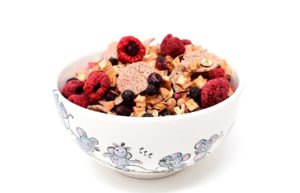Cholesterol is a fatty lipid, steroid and an alcohol found in the body tissues and blood plasma of vertebrates. It is the cardinal part of the outer membranes of human body cells and it circulates in the blood of humans. Cholesterol in the human body comes from two major sources – diet, and the liver, where it is produced internally.
High cholesterol in the blood is considered to be unhealthy. The cholesterol levels in the bloodstream can influence the pathogenesis of certain conditions, such as the development of atherosclerotic plaque and coronary artery disease. It gets collected on the walls of arteries and interferes with the flow of blood. This buildup of cholesterol in the blood vessels may constrict the passages considerably and inhibit the flow of blood to and from the heart.
Recent researches have revealed that the abundance of protein complexes, called lipoproteins are responsible for the cholesterol build-up in the blood vessels. Elevated levels of bad cholesterol (low density lipoprotein or LDL), are responsible for heart disease.
Cholesterol in your diet:
A high cholesterol diet is considered an unwholesome diet. Diets which are rich in animal fats, meat, poultry, fish, oils, egg yolks and dairy products, are a rich source of cholesterol. Organ meats, such as liver, are extremely rich in cholesterol. A diet high in cholesterol is fatal for the heart.
Healthy diets are considered effective to lower cholesterol. A low cholesterol diet contains extremely low or no cholesterol at all. Diets of plant origin are the best low cholesterol diets.
Fat is the major source of energy for the body, but excessive fat in the diet is dangerous. The excess fat raises blood cholesterol levels. It’s bad for the circulatory system and causes heart attack or stroke. The amount of fat and cholesterol in a diet should just be according to the daily calories required by the body. Thus a perfectly balanced diet is considered a healthy diet.
A perfect low cholesterol diet has the following features:
• It’s low in fat (especially saturated fat).
• It contains low cholesterol.
• It contains low sodium contents.
• It’s rich in fiber and complex carbohydrates.
• It’s usually a low calorie diet.
Besides taking low cholesterol diets, sugar and alcohol consumption should also be reduced, as they contribute to high cholesterol levels.
Avoid eating at fast food restaurants, because fast foods are usually high in fats and sodium.
Regular exercise can also reduce cholesterol levels.
Recent studies have revealed that certain deep-sea fish — mackerel, salmon, herring, albacore tuna, and lake trout — contain an oil called Omega-3 fatty acid that may help to lower blood cholesterol.






